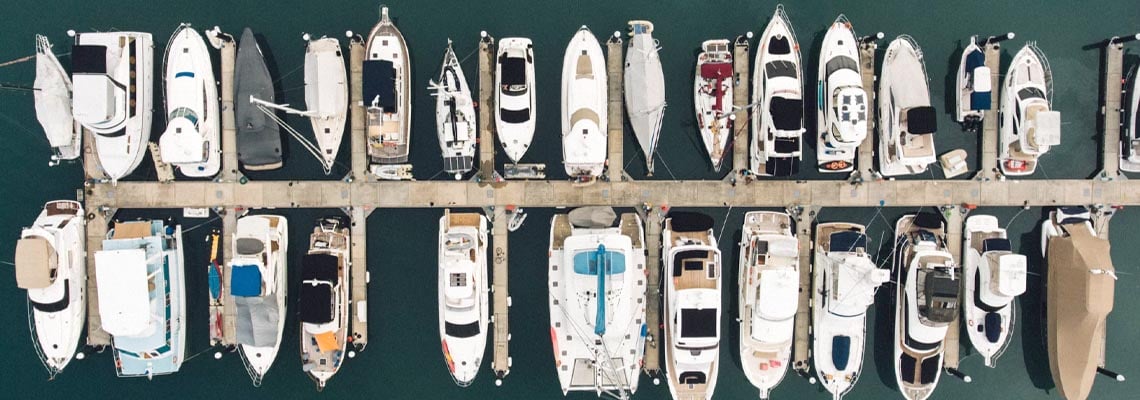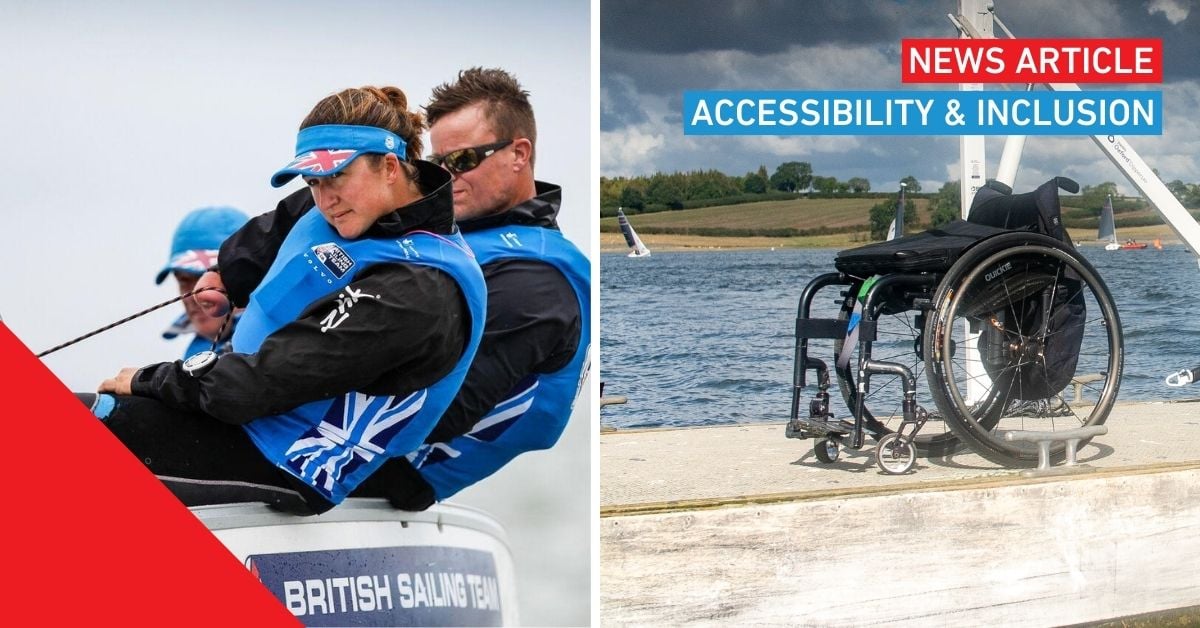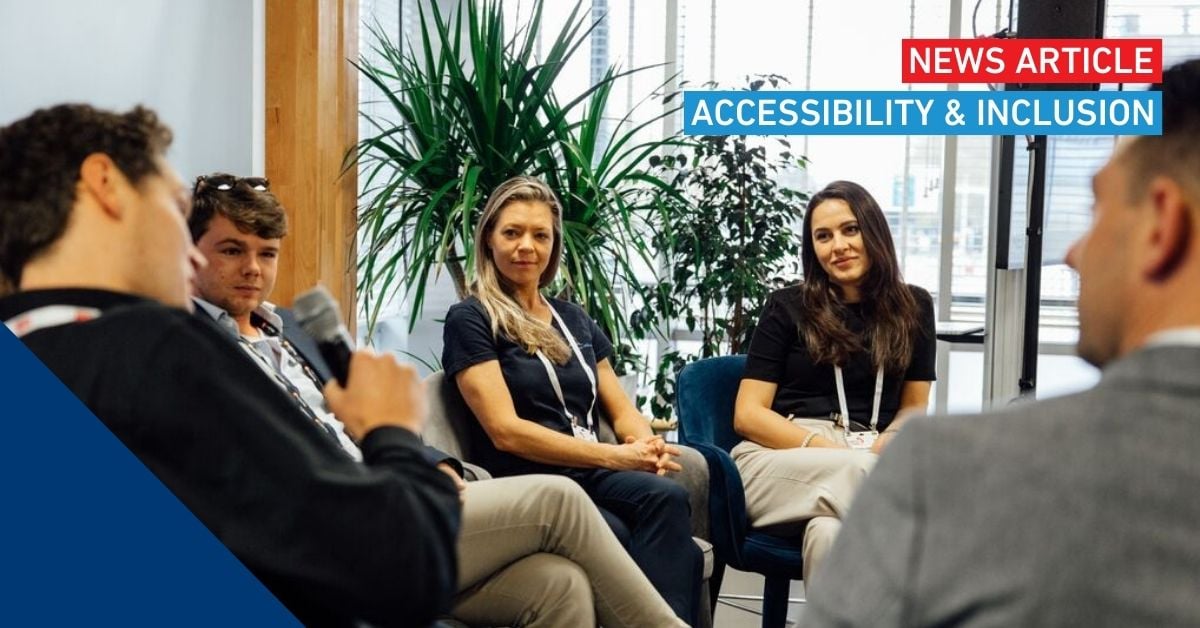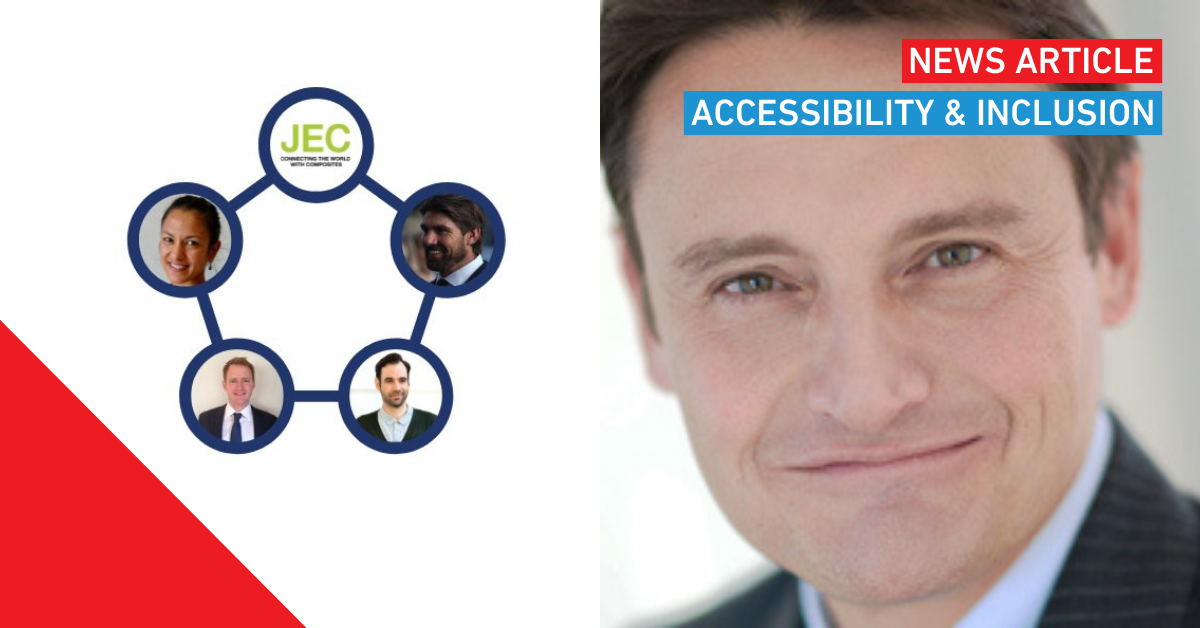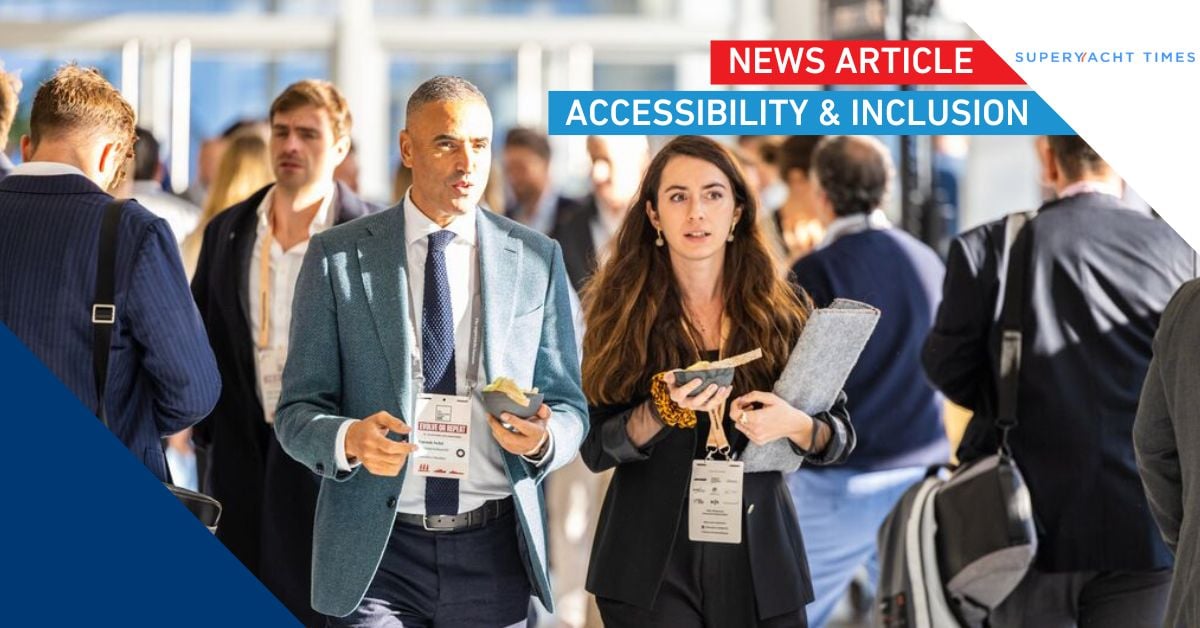Marine Market Inside: Furuno and Lippert Marine Group about challenges and innovations
In METSTRADE Market Inside we share insights and knowledge from the leisure marine industry itself. This time METSTRADE exhibitors Furuno and Lippert Marine Group Europe (Lewmar, Trend Marine, Taylor Made) discuss challenges in the industry and the impact of innovation and new technologies on their marine company.
“The current global dynamics are proving to be a persistent challenge. Increased costs of raw materials and energy and supply chain delays have had a dominating effect on the marine industry, and Lippert Marine Group Europe has been no exception to this,” says Lippert’s Managing Director Matthew Johnston when asked about challenges his organisation faces. “Delivering value to our OEMS in the form of clear communication is important to help us continue to provide relevant solutions to our customers.”
It's all about connecting
For Lippert, new technology played an important role in this process. “The acceleration of digital technology, in particular video conferencing following the pandemic, has enabled us to connect with our customers even when we could not physically travel. Video conferencing was almost unheard of in our pre-pandemic routine. While we return to being ‘up front and centre’ with many face-to-face meetings, we cannot ignore the opportunities that these digital tools now offer us, to connect with customers at short notice for meaningful, regular discussions in the most efficient way. Our ability to connect our technical support team with customers, distributors and dealers around the globe has really enabled them to serve on another level, with webinar trainings and video conferencing for front technical support.”
For Furuno, ‘connections’ play an important role for their products as well. “A variety of connections are required nowadays on board, like ship to land, ship to ship, and device to device. Connecting all these different types of systems is definitely a challenge,” says Furuno Director Shinya Tamura. However sensor technologies have been improving year by year. “In the past, the data was only registered and managed on the equipment onboard. Now, these types of data are real-time synchronized and managed on mobile apps, PC software, web browsers, and Furuno’s latest NavNet series MFDs. While the content of integrated items with MFDs is increased, we have been working hard to improve the technology to offer more volume and value of connections.”
Innovation in marine product development
Although different kind of companies at heart, both Furuno and Lippert acknowledge the importance of innovation in product development. Matthew Johnston (Lippert): “A highlight from our product innovation series for 2022 is our growing selection of roofing systems. Our newly launched division brings a comprehensive range of fabric systems, adding to our successful line of hard top capabilities. The roof division’s focus is on designing to meet the growing demands for exterior comfort and sun protection from boaters across the globe. New manufacture cells have been integrated into our Norfolk site, with all Lippert’s roofing systems designed and built in the UK, to the highest standards.”
The most important innovation for Furuno is the development of more accurate sensing technologies. Shinya Tamura: “We have been launching new sensors such as Radar, Fish Finder, and Multi Beam Sonar. For Radar, the latest Solid-State technology is leveraged for crips pictures and low consumption and integrated into MFDs. For acoustic sensors, CHIRP sounders and Multi Beam 3D Sonar are introduced. These sensor data are all integrated into MFDs to instantly observe the situation and condition under and above water. So, for example, if there are many vessels around your ship, only the approaching boats will show in red using Doppler signal processing with DRS-NXT series Radar sensors.”
Balancing sustainability
When talking about sustainability, the balance between sustainability and economic gain is always present in an innovation process. From Furuno’s point of view, the marine electronics industry itself already has a role in contributing to fuel efficiency. For example, while navigating a yacht sensor data can help on deciding the most appropriate and sustainable route. The company is working hard to manufacture products that have low environmental impact and to reduce impact in our business activities in the effort to achieve sustainability in society. Shinya Tamura: “We strive to reduce waste produced by our business activities and over the course of our products’ lifecycle by promoting the reduction, reuse and recycling of waste. Besides that we are always looking to reduce use and seek alternative for chemicals that have negative impact on living organisms.”
Matthew Johnston (Lippert) agrees: “Sustainability is vitally important to retaining the use of our waters. The impact of leisure activities on the marine environment has long been scrutinised and as a community of boaters, we feel responsible for the safe keeping of those habitats we use for work and play. As a company, we invest in process efficiency, advanced machinery, and increasingly eco-friendly energy resources to provide a healthier environment. A recent example is the introduction of QR codes on packaging to direct customers to online manuals, eliminating the need for printed documents will prevent 113,000 manuals being sent to land fill every year. Lippert firmly believes that small and continuous improvements are also vital to the success of reducing impact.”
Last but not least, we asked both companies what trends they think will dominate the leisure marine industry in the coming years.
Look out marine industry trends
According to Lippert Marine Group Europe, especially docking and anchoring will see lots of innovation: “Innovations in docking and anchoring are playing a major role in supporting the huge influx of new boaters to the industry. For Lippert and its Lewmar brand specifically, efforts to make boating easier and more accessible to those keen to get out on the water is of core priority in developing new innovations and expanding our product portfolio. For us, getting out on the water is about enjoying the experience, safely, with products you trust.”
The explosion in the pontoon boat market and a significant increase in new boaters in the USA have also presented a huge opportunity for Lippert. “Our years of expertise in designing and manufacturing reliable products will provide a solid foundation for new product development to support that market expansion and tackling the challenges posed by the non-boating market, who are excited to take to the waters. “In the marine electronics industry Furuno believes it’s going to be all about further integration with marine electronics and devices. “Currently, autonomous navigation has been evaluated in commercial shipping and we foresee that its technology will come into the leisure segment. For that, we will also be required to continue to improve our sensing technology and launch something new. The concept of ecosystems will evolve even more.”
Is there something else you would like to share about your business?
When asked what else both companies would be keen to share about their business, Matthew Johnston (Lippert) replied: “With the combined design, engineering and manufacturing experience of Lippert Marine Group Europe’s three UK and Ireland sites, we are able to offer innovative glazing solutions to suit each individual OEM’s requirements. We are able to call on the knowledge of our colleagues in the wider Lippert team, working in the RV and Rail sectors and we expect to see more cross-over products coming into Marine over the next 12 to 24 months. A great example of this are flexible, space-saving, powered bed solutions designed for recreational vehicles, that we are now proud to be supplying into the Marine market.”
Shinya Tamura: “Furuno works for marine electronics equipment and service on a variety of segments such as fishing, commercial shipping, workboats, coastal monitoring, etc., in addition to leisure, while the technology accumulated and evolved in one field is leveraged on the other. Radar and sounder mentioned above originally came from the fishing segment and evolved through commercial shipping, but now they are integrated into MFD to be the core part of leisure boats. On the other hand, the Cloud technology in the leisure segment is to come to the commercial shipping and fishing. While our technologies are grown and proven in each segment, we will keep working and growing through all the segments.”
Share your stories on leisure marine industry with us
Do you have an innovation, research results or an other interesting topic you would like to share with the leisure marine equipment industry? The METSTRADE website and social media channels are a great platform to showcase your stories! Let us know via metstrade@rai.nl
Are you a METSTRADE exhibitor?
Make sure you add your latest press releases to your Company Profile in the Exhibitor Portal for free exposure.
